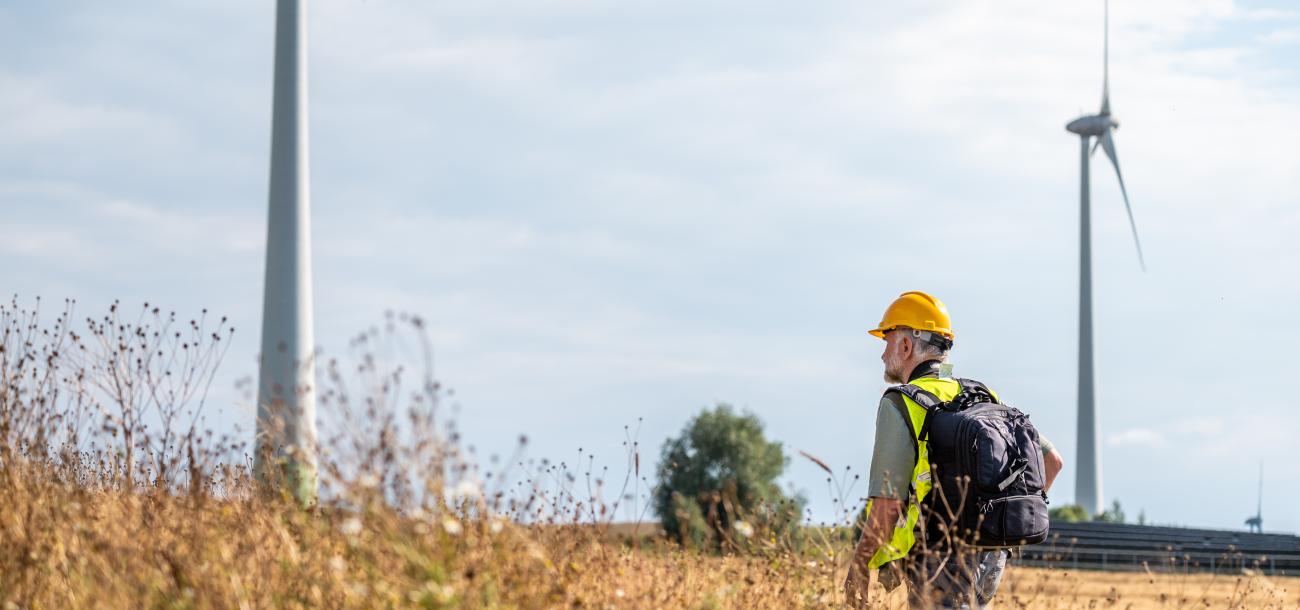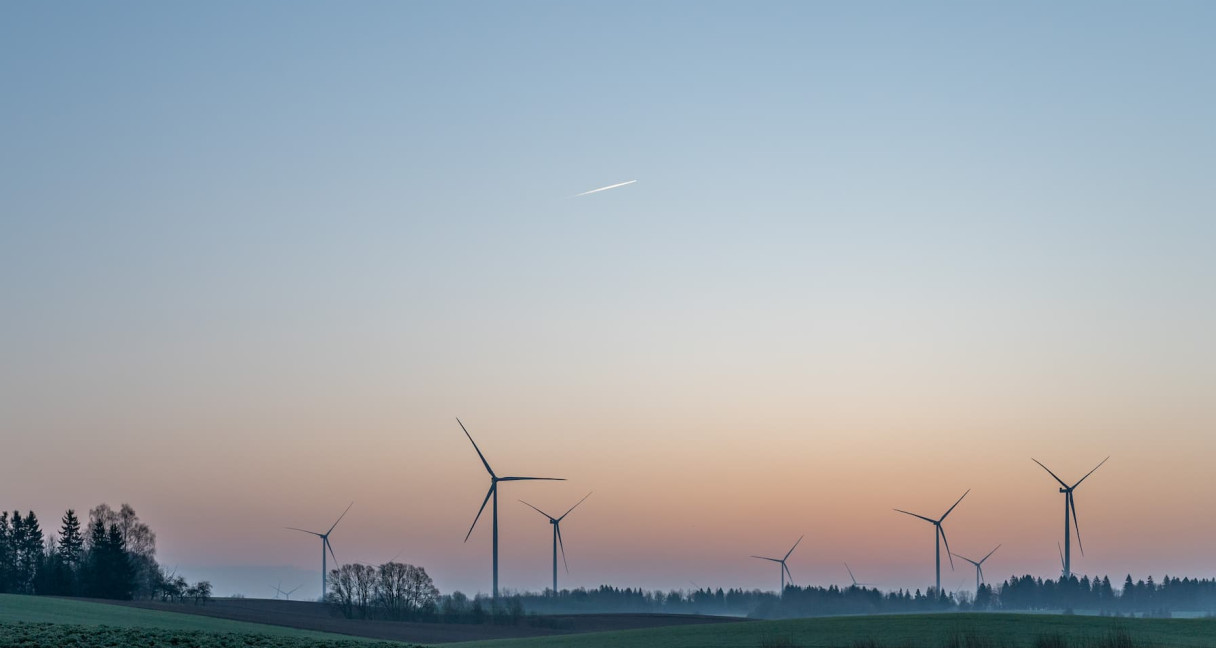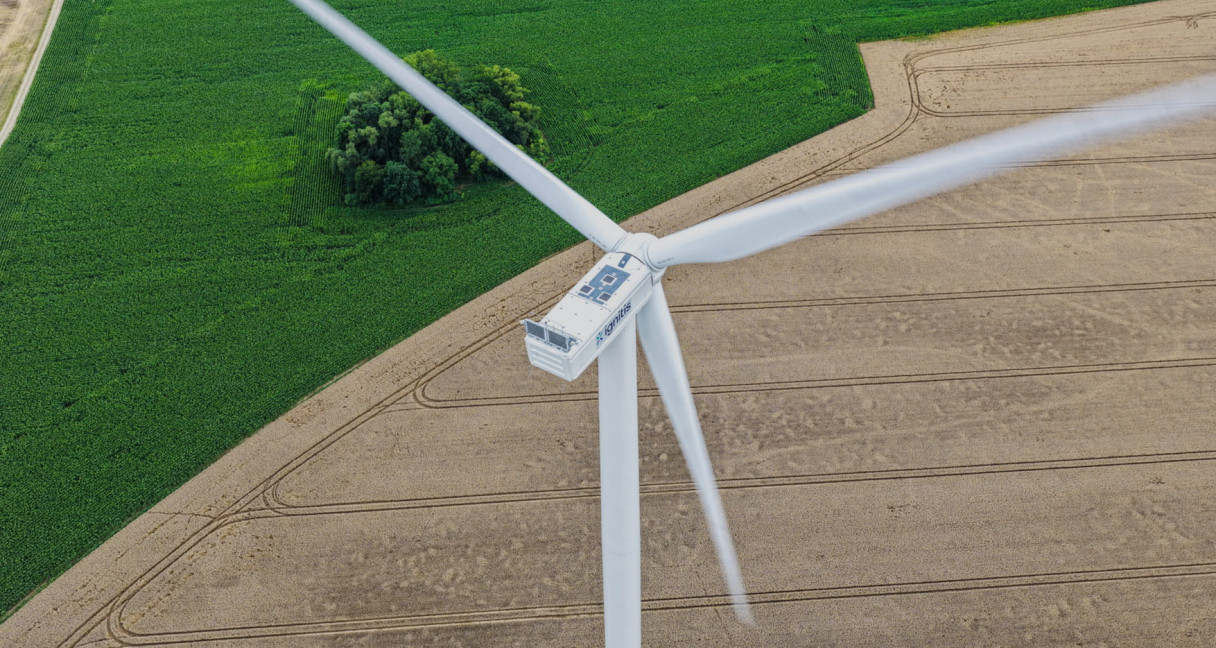Ignitis Renewables cares about biodiversity and it will carry out a rare study
Ignitis Renewables, an international green energy company, is taking additional measures to protect biodiversity in the vicinity of renewable energy projects it manages. The company is carrying out the first study in Lithuania on the environmental impact of green energy plants. Experts will spend three years assessing the changes in flora and fauna at the solar park being built in Tauragė district. The company of Ignitis Group aims to develop best practices and it will apply environmental initiatives in its other projects both in Lithuania and in other countries.
Lina Žibienė, Head of Environment and Permitting at Ignitis Renewables, points out that biodiversity conservation is one of the key objectives of the company’s sustainability strategy. According to the expert, green energy is closely linked to nature and its preservation.
“When we build solar or wind farms, we inevitably have an impact on the environment. That is why it was decided to carry out the first study in Lithuania to identify how the flora and fauna of an area change after a solar park is built. Although green energy is developing rapidly, such studies are not common worldwide. The studies need to be carried out by competent specialists with the knowledge and experience to identify plant species accurately and to assess objectively the age of maturity of the different plant species. Moreover, the study takes time, at least three years,” comments L. Žibienė.
Maintaining biodiversity is a key objective
L. Žibienė hopes that the study, funded by Ignitis Renewables, will help to shape best practices in the operation of solar parks. It is hoped that the findings of the study will be of interest not only to businesses but also to researchers. The data is collected in Lauksargiai eldership, Tauragė district. The area will be used for the development of green energy production through the installation of a hybrid wind and solar park. The wind farms have already been built and a 22 MW solar park is being built next to them.
“Our study will monitor the diversity of flora and fauna: before the power plants are built, while they are in operation, and one year after they start operating. This will help us to see how biodiversity changes when solar power plants are installed and how nature recovers over time. We will also be working on a range of environmental initiatives to see how they help improve the environment,” says the representative of the green energy company.
L. Žibienė says that the environment is most affected during the construction process itself. According to the expert, the soil is compacted by heavy machinery and construction work, which leads to soil erosion. “Construction machinery alters the vegetation, breaking up herbaceous plants and weakening the seed bank deep in the ground. Insects feel the soil degradation. In nature, everything is interconnected, so as insect populations decline, rodents, birds and eventually larger animals find it harder to find food,” says the expert.
Creating favourable conditions for birds and animals
According to L. Žibienė, Ignitis Renewables is looking for ways to build and maintain solar power plants to minimise their negative impact on the environment. The company is also planning voluntary environmental initiatives to improve the state of nature.
“For example, in the hybrid park, we are following best practice principles and putting in place measures to protect biodiversity. We plan to install a fence that will be no more than 2.5 m high and up to 0.5 m above the ground, which will allow small animals to move around freely. The fences surrounding the solar park will be painted in neutral colours. The perimeter of the fenced area will be more than four kilometres, so it has been decided to install 10 single gates so that roe-deer or other animals that accidentally enter the area can escape more safely,” says L. Žibienė about the protection of wild animals.
Another interesting solution is to create perching areas for birds of prey and owls. L. Žibienė points out that the area of the hybrid solar and wind park has a larger population of the Buteoninae, which hunt while perching. Therefore, 13 bird stands will be installed in the area.
Solar and wind power plants will be surrounded by clover fields
In the area of the solar park, Ignitis Renewables also plans to plant natural herbaceous plants that are specific to that area. According to L. Žibienė, the company wants to test this measure, which is still rarely used in Lithuania, and share its experience.
“We want to prove that green energy can not only repair damage caused by human activity, but also improve the environment. Before, the site was covered with stubble left over from the cessation of farming activities, and low-value weeds. After the construction of the park, we plan to sow a seed mix of grasses specific to the site and specially selected by experts, including ragged-robin, spreading bellflower, meadow pea, and zigzag clover, while the rest will be left to regenerate on their own, i.e. to grow back naturally. It is important to mention that we consult specialists (botanists, ornithologists, etc.) on all the solutions and follow their recommendations. During the operation of the park, the meadow will be maintained and mowed at a time that is favourable for animals and birds, when they are not making nests or laying eggs,” comments the company’s representative.
L. Žibienė reminds that after all of the above-mentioned solutions have been applied, a biodiversity study will be carried out on the site in a year’s time to assess how the flora and fauna have changed during the operation of the solar park. To ensure the quality of the data collected, the study will be carried out by researchers in accordance with strict regulations on research methodology.
Ignitis Renewables will apply all environmental initiatives not only in the park in Tauragė district, but also in its other projects. The information gathered by the green energy company will be freely shared not only with other companies in the energy sector, but also with naturalists and environmentalists.





